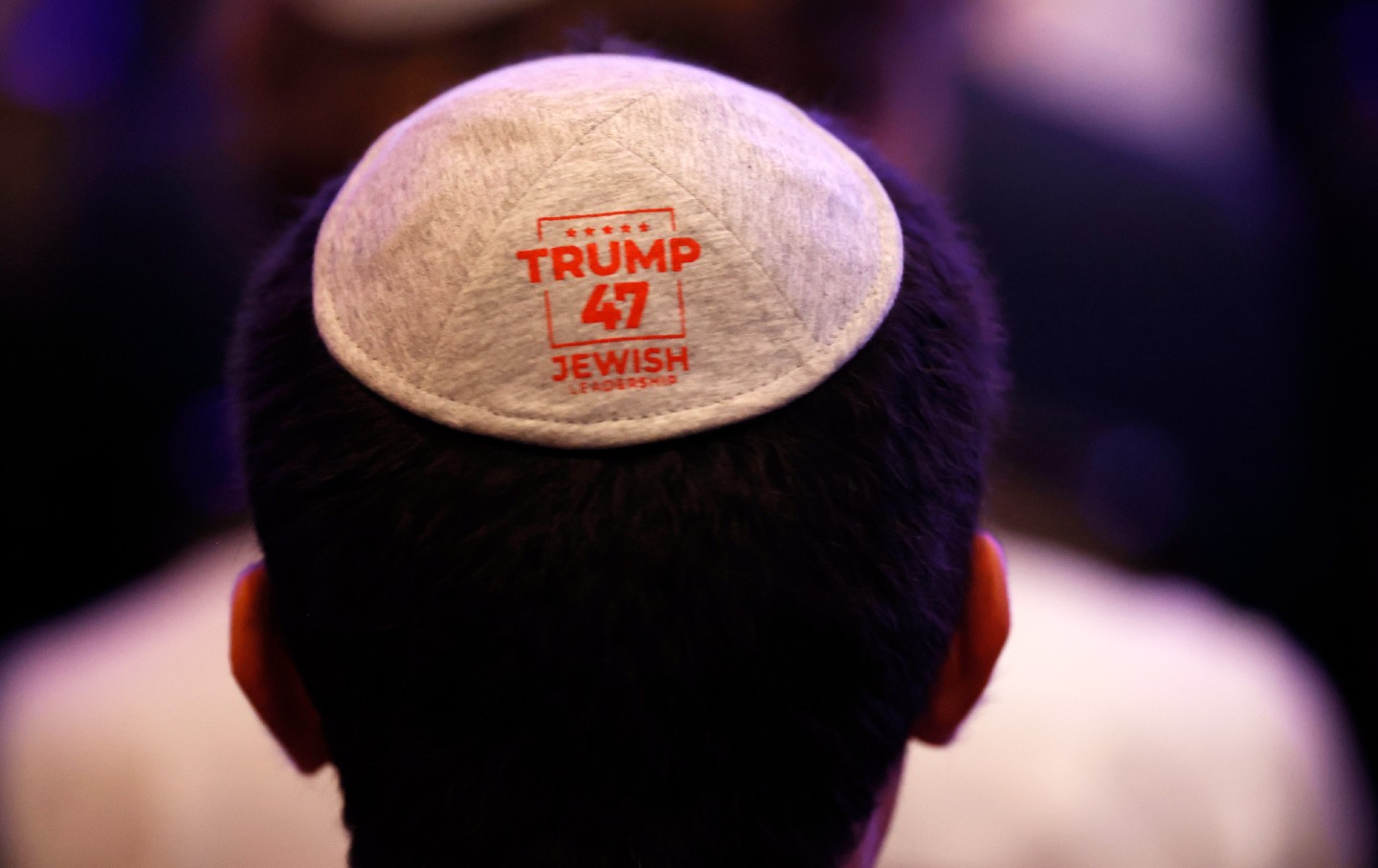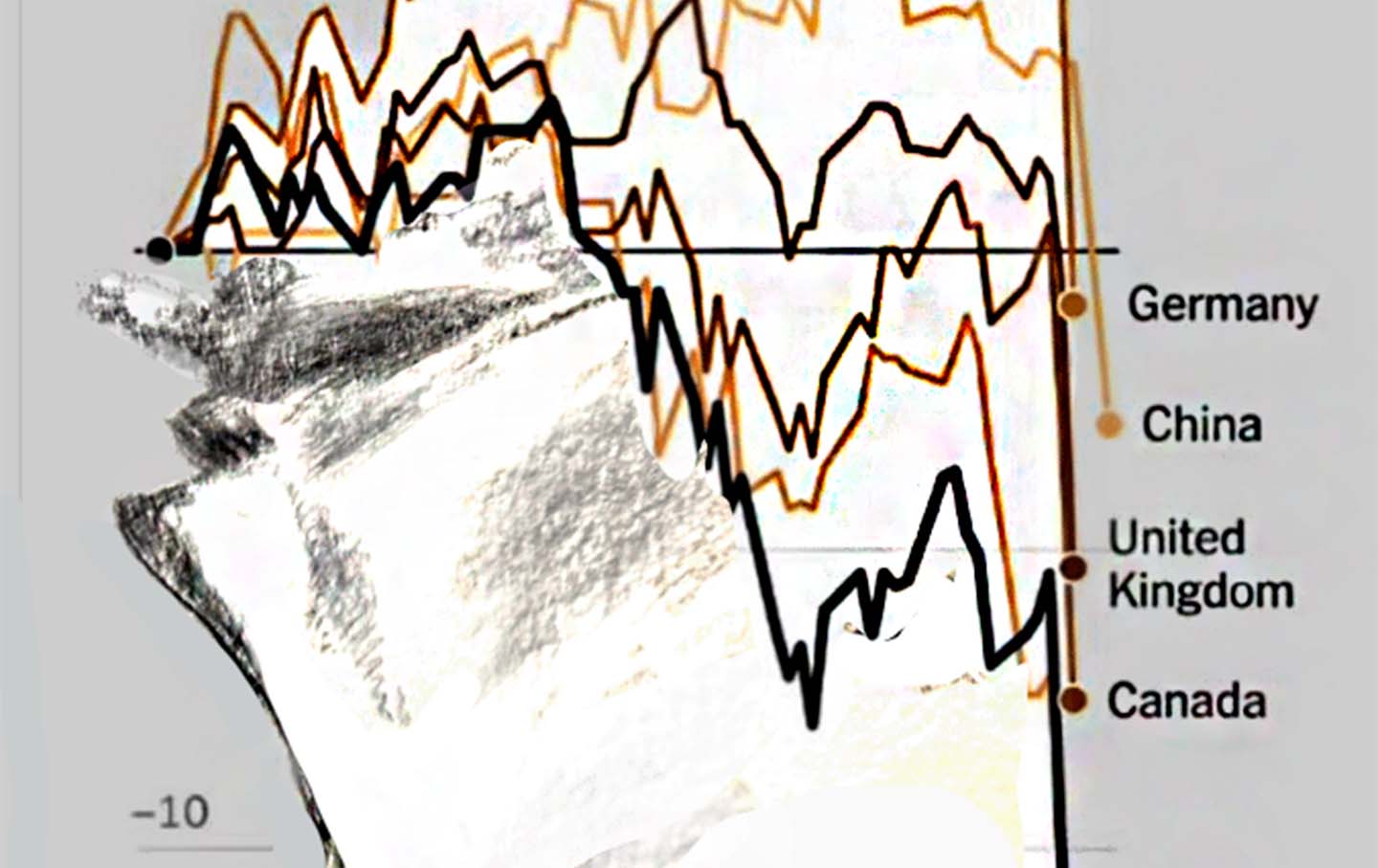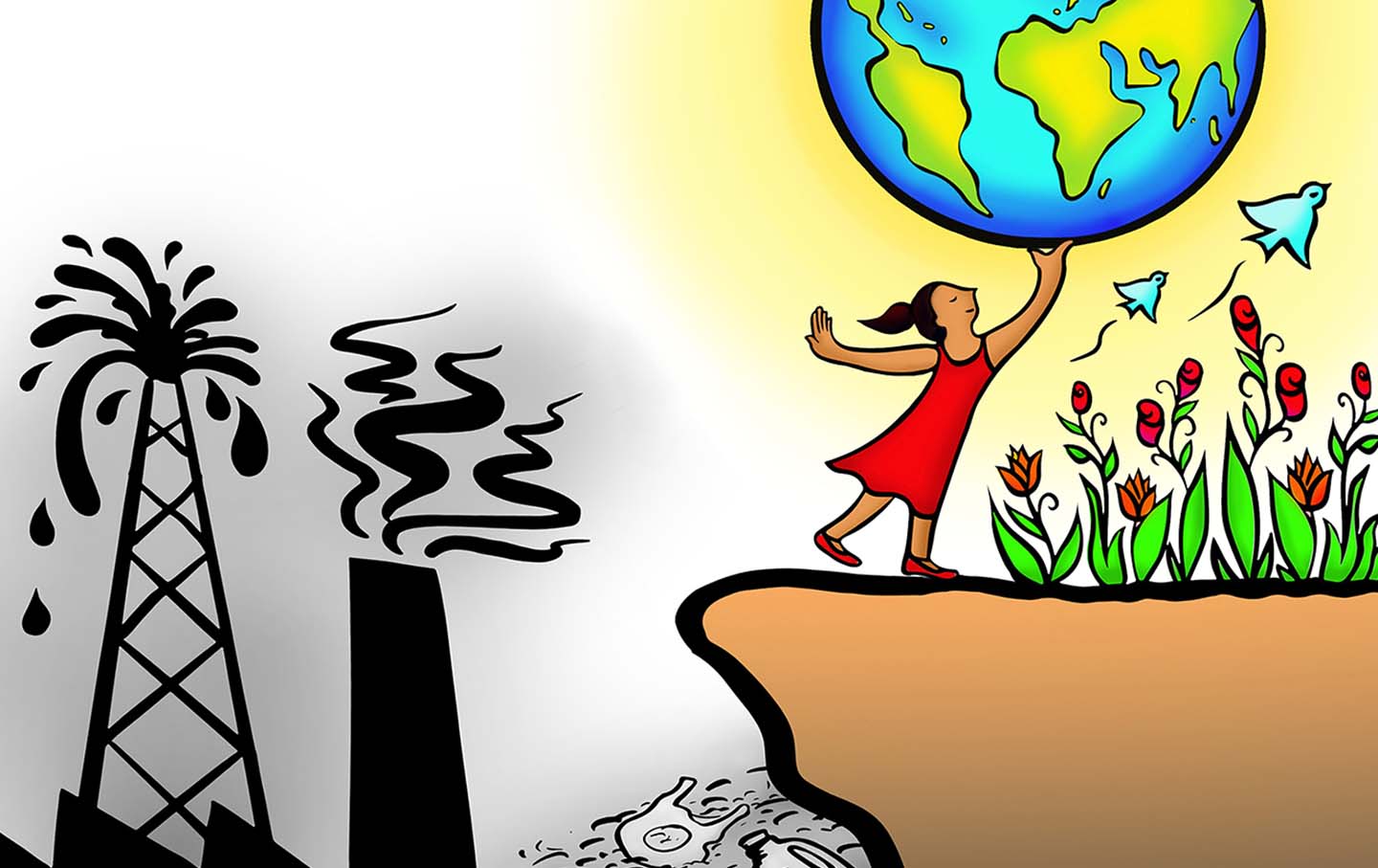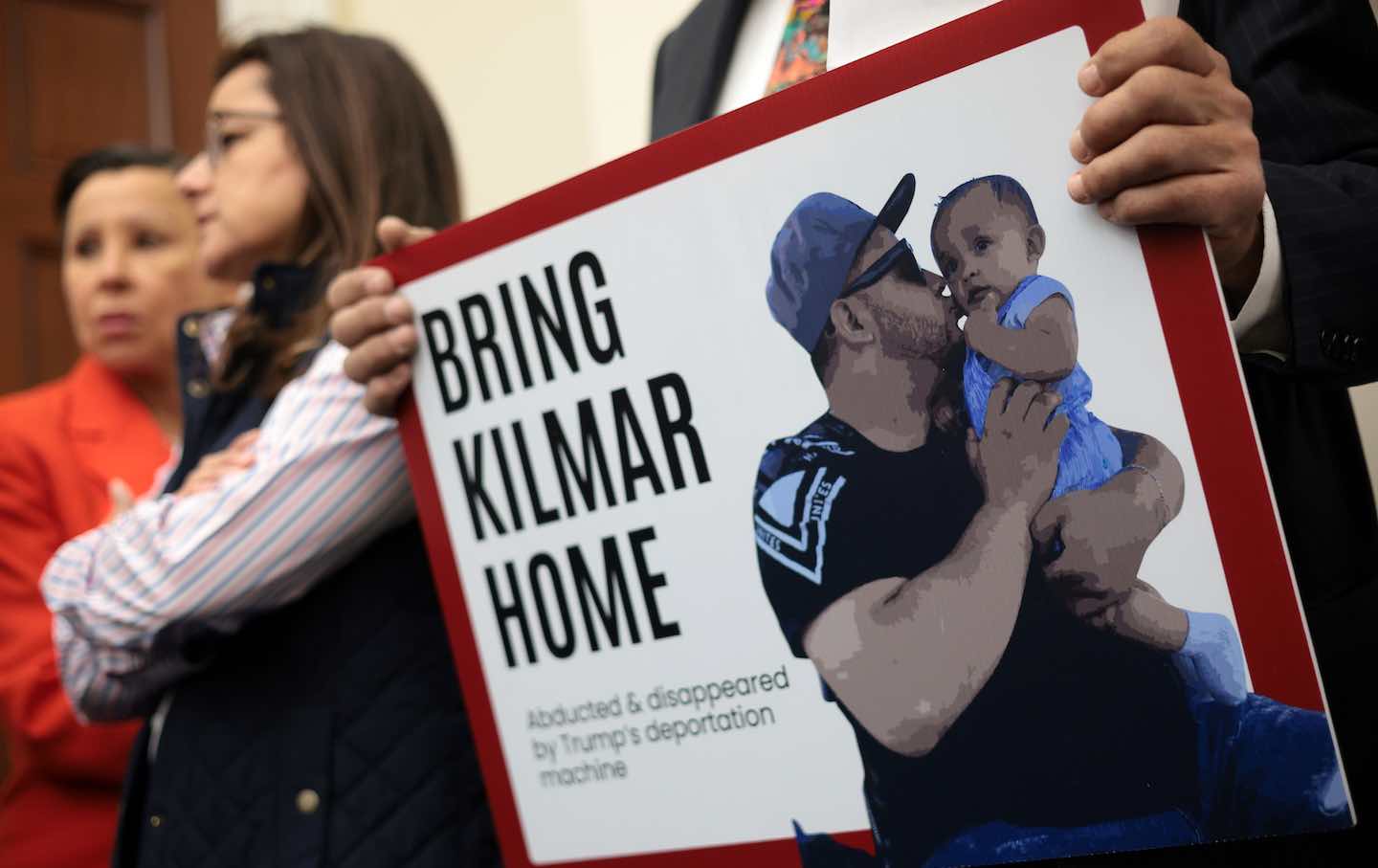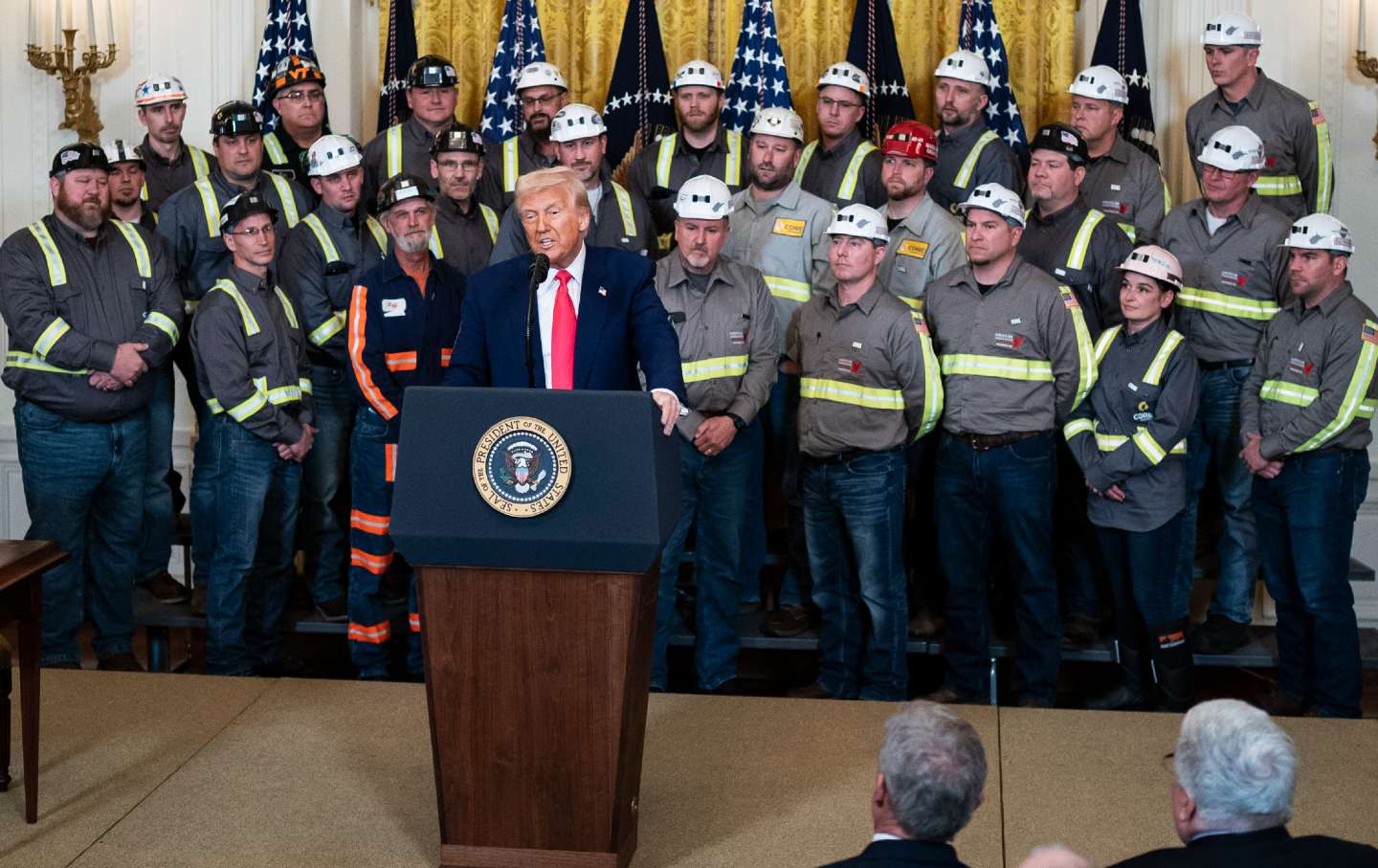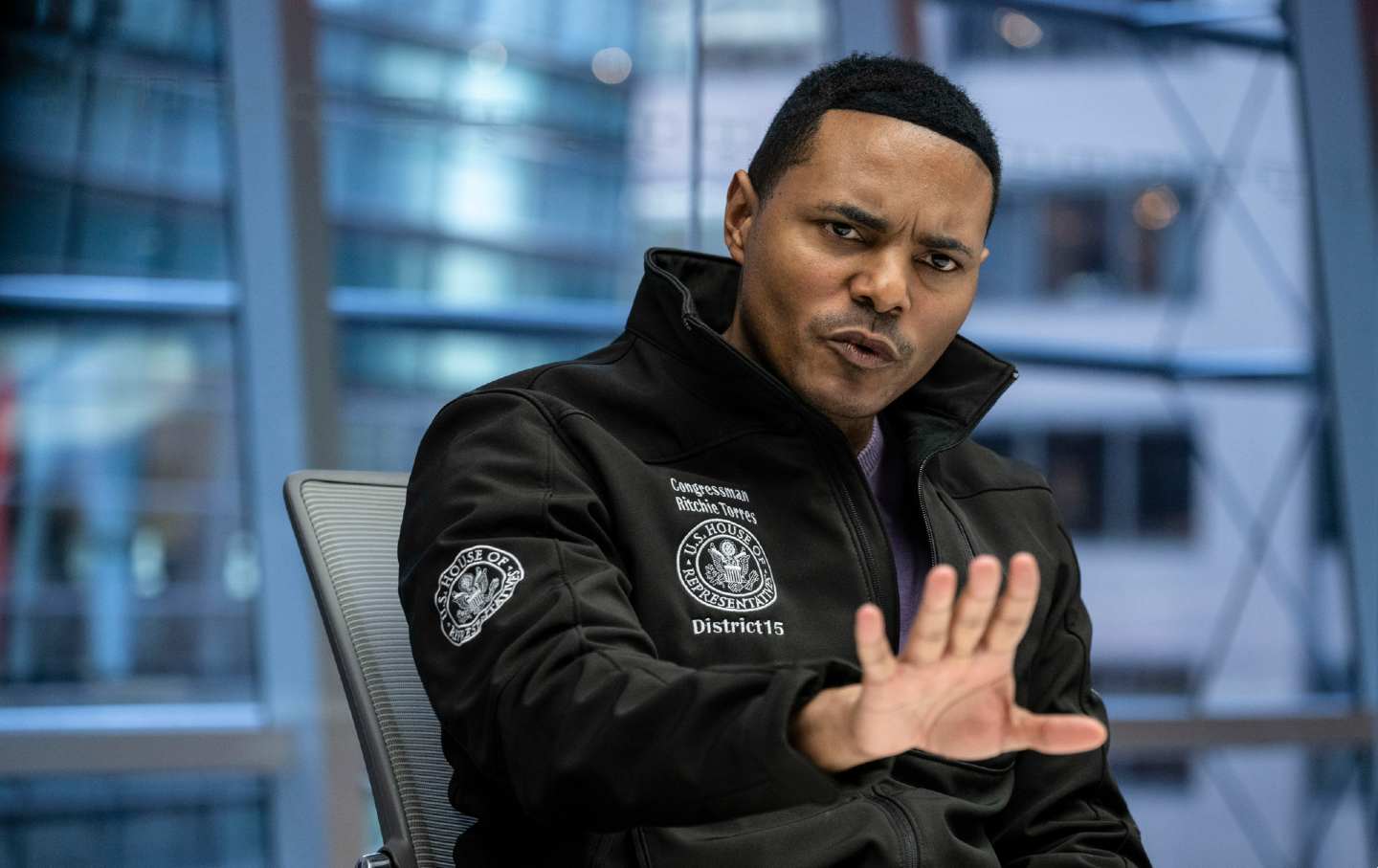Why Are Presidential Assassins Such Sad Sacks?
What would-be killers of the US commander in chief have in common is that they aren’t fervent ideologues; they’re outcasts.
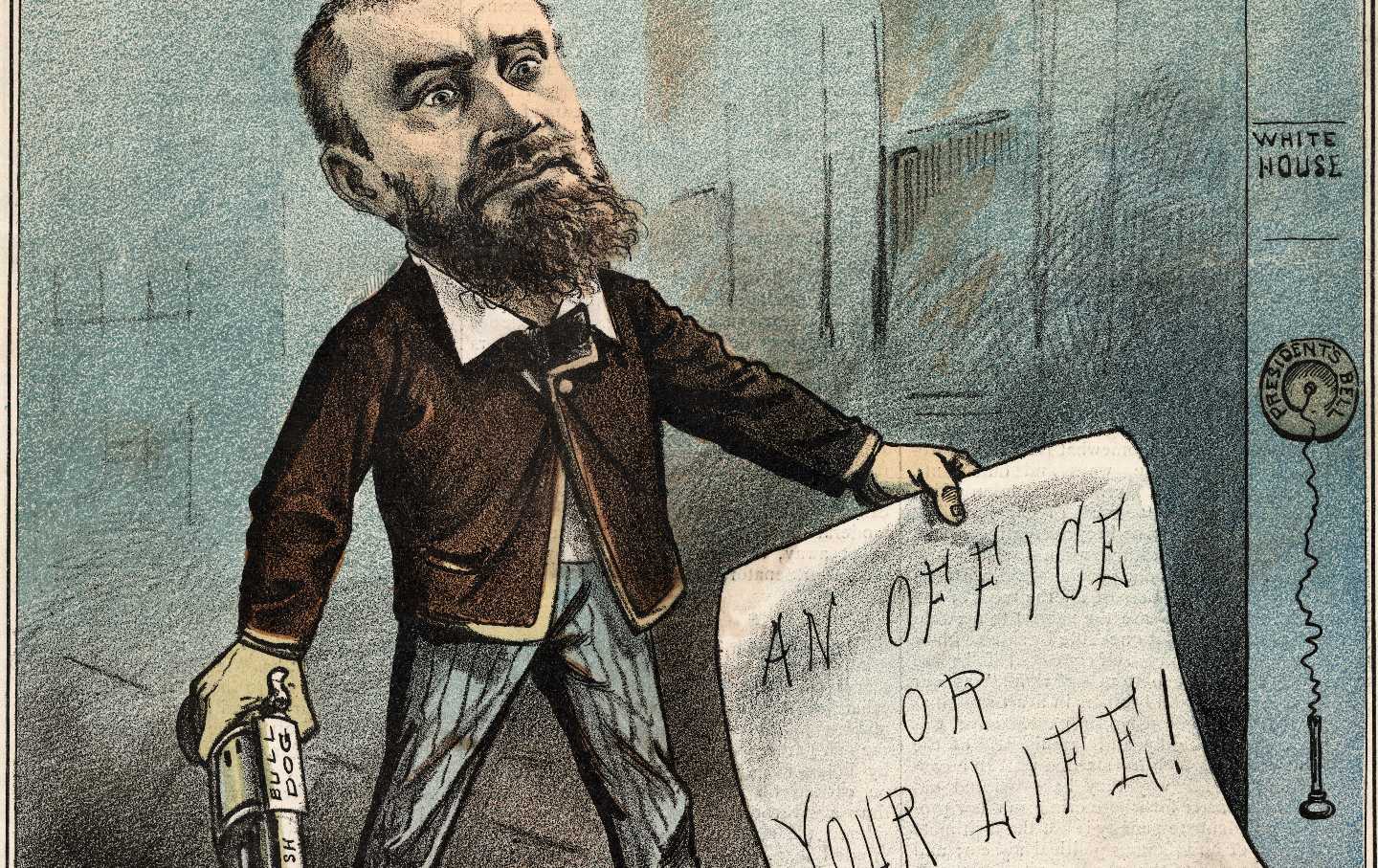
In a 1881 political cartoon, Charles Julius Guiteau approaches President Garfield at the White House to ask for a diplomatic post. Guiteau assassinated Garfield in 1881.
(Getty)You’ve already read the headlines: Former president Donald Trump survived an assassination attempt. Sudden explosions of violence, especially in the churn of the social media age, tend to be followed by a tense void of information that only time, wild speculation, and flat-out falsehoods can fill. Assumptions swirled that Thomas Matthew Cooks, the 20-year-old man who opened fire at a rally in Butler, Pennsylvania, on July 13—killing attendee Corey Comperatore before being killed himself by police—was motivated by anti-Trump politics. Much of the conjecture may have been in bad faith, but it wasn’t implausible—the target was one of the most polarizing figures of modern times in an election season that often feels downright apocalyptic.
As details trickled in, however, the picture that emerged of Crooks was less of an ideologue and more of, well, a dud. Former classmates described him as a bullied loner who was reportedly rejected from his school’s rifle team for poor marksmanship. He had no apparent social media presence, and what’s emerged of his politics is incoherent—he was a registered Republican described by peers as politically conservative but also donated the princely sum of $15 to the Democratic fundraising platform ActBlue.
The ratio of presidents to assassins is vanishingly small, so it can be hard to make broad assertions about what kind of person the average assassin is. Nonetheless,Crooks fits a surprisingly common pattern among presidential assassins (would-be and successful alike): aimless misfit with scant interest in politics before a fateful decision. This does not describe America’s inaugural presidential assassin, John Wilkes Booth, who was a committed Confederate sympathizer and white supremacist. Future assassins, however, were more in the mold of Charles Guiteau, who shot James Garfield in 1881.
Guiteau’s life story is uniquely pitiful. He joined the Oneida, New York, free-love commune in the 1860s but left in frustration over the other members’ lack of interest in him. After a failed marriage and an unsuccessful stint as a wandering preacher, he became convinced that if he campaigned hard enough for then-candidate Garfield, he would be rewarded with a consulship to France (years before, he had similar notions about Democratic candidate Horace Greeley, who lost to Grant in 1872). After he was rebuffed by Secretary of State James Blaine, he shot the newly elected president on a train platform, causing a series of infections that would take more than two months to kill him. At the gallows, he denounced Garfield’s running mate, Chester Arthur, the man he had made president, as “a coward and an ingrate.” Then he recited a hymn of his own writing, assuming a falsetto voice, until the hangman pulled the lever.
The remaining successful assassins are somewhat grayer areas. Neither of them could be called apolitical per se. Leon Czolgosz, who assassinated William McKinley in 1901, was an anarchist won over to the cause by the legendary oratory of Emma Goldman. Lee Harvey Oswald, the (bear with me here) presumed assassin of John F. Kennedy, had previously defected to the Soviet Union. But they shared their fellow travelers’ frustrated ambitions and struggle for purpose. Oswald wrote in his diary in 1961 to lament that the USSR had “no night clubs or bowling allys [sic] no places of recreation acept [sic] the trade union dances” and began the process of repatriating shortly after. Czolgosz, even as he attempted to participate in anarchist politics, was so awkward and curious about basic anarchist doctrine that an anarchist paper published a warning that he was a spy seeking to entrap them.
Every would-be assassin since Kennedy’s killing has been far closer to a Guiteau than a Booth—from John Hinckley Jr., who decided shooting Ronald Reagan would impress the actress Jodie Foster, to Charles Manson acolyte Lynette “Squeaky” Fromme and Sara Jane Moore, who targeted the ultimate tabula rasa, President Gerald Ford, three weeks apart, to Sam Byck, who killed a pilot and a policeman in 1974 in a failed hijacking of a DC-9 plane, which he planned to ram into the White House to kill Richard Nixon. Byck had threatened the president before, but only because he blamed him for the denial of a Small Business Administration loan. Like Guiteau, the president whose death he sought was part of his world, but not as a leader or a political actor, only as an antagonist to Byck, the hero of the story.
The American presidency is, in theory, a tightrope act between calling on the collective cooperative spirit we need for civil society and summoning the individualist spirit of America’s founding. The president is (certain recent court decisions notwithstanding) not a king: The office is not inherited; it expires, and it requires the consent of the people. But it also gives its holder immense power over the country, including powers monarchs could never have dreamed of, like using nuclear weapons. That alone is a tremendous thing to entrust to a single person, whether they claim divine right or not. The “American dream” is often invoked in the modern sense as a specifically capitalist success story, but every president seeks to cast themselves as a lone hero who overcame long odds, even if those long odds included being the son of another president.
Historically, the men and women who shoot at presidents, too, have sought to be special. Anyone can become president in America, we’re told, but it also takes an undeniable amount of egotism to think that should be you. And if that same kind of egotism takes you to darker places, perhaps it tells you anyone can kill the president too.
After all, people with similar histories of failure and longing for a sense of purpose have also been known to join criminal organizations or terrorist groups like the Islamic State, or less destructive collectives like a community organization or a church. But to kill a president is not to become part of something bigger than yourself—it is, for just a moment in history, to become the active half of the only two people in the universe. Sara Jane Moore testified at her sentencing that shooting Ford seemed “the correct expression of my anger.” Like Moore’s, Byck’s or Guiteau’s anger—they claimed—was so uniquely important that there was no “correct expression” of it but against the most powerful man in the world.
In Stephen Sondheim’s 1990 musical Assassins, the spirits of the figures listed above act as the devil on Oswald’s shoulder, dissuading him from suicide by telling him his life can hold meaning if he kills Kennedy instead. “You can close the New York Stock Exchange,” Booth promises. Maybe that’s the grim irony of every disaffected nonentity who kills or nearly kills a president: If everyone in the country is cursing your name, that means they know your name.

